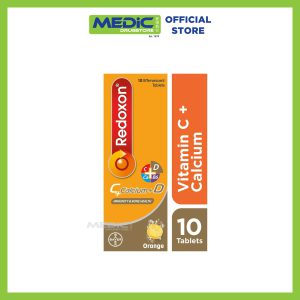Vitamin C, also known as ascorbic acid, is a crucial nutrient that plays a vital role in maintaining good health. It is an antioxidant that protects the body against free radicals, which can cause damage to cells and lead to chronic diseases.
Time-release vitamin C is made for better absorption in smaller doses throughout the day. This formula gradually releases the nutrient, eliminating the need for multiple tablets and maximizing health benefits.
Vitamin C is also essential for the production of collagen, a protein that provides structure to skin, bones, and tissues. However, not all forms of vitamin C are created equal. In this article, we will explore the different types of vitamin C and discuss which form is best for you.
What is the most effective form of vitamin C?
The best form of vitamin C depends on your individual needs and preferences. Ascorbic acid is the most common and affordable form of vitamin C, and it is effective in promoting overall health and wellness.
However, if you experience stomach discomfort when taking ascorbic acid supplements, sodium ascorbate or calcium ascorbate may be a better option for you. If you are looking for a highly absorbable form of vitamin C, Ester-C may be the best choice.
Types of Vitamin C:
There are 4 types of Vitamin C commonly available in the market.
Ascorbic Acid
Ascorbic acid is the most common and well-known form of vitamin C. It is readily available in supplements and is often added to foods and drinks. Ascorbic acid is easily absorbed by the body and is effective in boosting the immune system, promoting wound healing, and improving skin health.
Sodium Ascorbate
Sodium ascorbate is a buffered form of vitamin C that is less acidic than ascorbic acid. It is often recommended for people who experience stomach discomfort or gastrointestinal issues when taking ascorbic acid supplements.
Sodium ascorbate is also a good option for people who need to limit their sodium intake, as it contains less sodium than other forms of vitamin C.
Calcium Ascorbate

Calcium ascorbate is a form of vitamin C that is bound to calcium. This form of vitamin C is less acidic than ascorbic acid, making it a good option for people with sensitive stomachs.
Calcium ascorbate is also a good source of calcium, which is essential for strong bones and teeth.
Ester-C
Ester-C is a patented form of vitamin C that is believed to be more easily absorbed and retained by the body than other forms of vitamin C. Ester-C is also less acidic than ascorbic acid, making it a good option for people with sensitive stomachs.
Related FAQs
Can I get enough vitamin C from food alone?
It is possible to get enough vitamin C from food alone if you eat a balanced diet that includes plenty of fruits and vegetables. However, many people choose to take vitamin C supplements to ensure they are getting enough of this essential nutrient.
How much vitamin C should I take?
The recommended daily intake of vitamin C for adults is 75-90 mg per day. However, some people may need more vitamin C, such as smokers, pregnant or breastfeeding women, and people with certain medical conditions.
Consult with a healthcare provider to determine the appropriate dose for your individual needs.
Can I take too much vitamin C?
Yes, it is possible to take too much vitamin C, which can lead to gastrointestinal issues such as diarrhea, nausea, and stomach cramps. The tolerable upper limit for vitamin C is 2000 mg per day for adults. It is advisable to take vitamin C in moderation.
References
- National Institutes of Health: Office of Dietary Supplements – Vitamin C: https://ods.od.nih.gov/factsheets/VitaminC-HealthProfessional/
- Mayo Clinic – Vitamin C: https://www.mayoclinic.org/drugs-supplements-vitamin-c/art-20363932
- Harvard Health Publishing – Choosing the Best Vitamin C Supplement: https://www.health.harvard.edu/staying-healthy/choosing-the-best-vitamin-c-supplement
- Cleveland Clinic – Vitamin C: Benefits, Sources, Supplements, & More: https://my.clevelandclinic.org/health/articles/16740-vitamin-c-benefits-sources-supplements-more
- MedlinePlus – Vitamin C: https://medlineplus.gov/vitaminc.html






